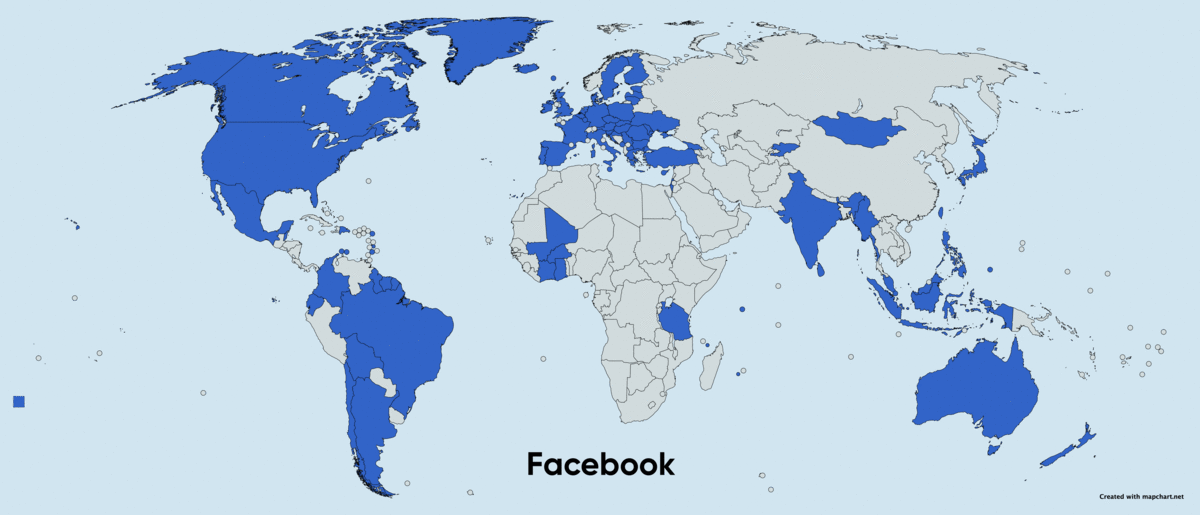
Beyond Political Ads Transparency
Over the past years, there has been much attention paid to political advertising transparency on social media. Facebook, Google, Snapchat, and Twitter have taken action (some more than others) to provide users with more transparency as to why they are seeing certain ads and what advertisers are targeting them.
- Strong implementation and enforcement of data protection law is needed, along with much more.

As we come to the end of 2019, major weaknesses remain with the transparency that all major platforms have so far provided to users. This piece will overview these weaknesses and suggest steps to move forward in 2020.
Tying heightened transparency to "political" ads introduces a variety of problems. For a start, each platform has defined "political" differently, with some having wider definitions and some, incredibly narrow. When an ad is not designated as political, oftentimes it is provided no transparency.
A concrete example of this is how Twitter treated political ads prior to its ban coming into force on 22 November 2019. Twitter provided heightened transparency to election ads, which are ads from political campaigns that are tied to an election, instead of providing transparency to political ads continuously. Political ads that were not tied to an election were treated simply as promoted tweets and were not provided any transparency. By banning political ads, it’s unclear how the change will affect the bulk of political content on twitter – non-election ads that are political in nature. PI has documented an instance of a Brexit Party ad being run prior to the 2019 election being called that was provided no targeting transparency and have been deleted. This is important to highlight because if the aim is to understand how political actors are testing and buying ads, how and who they are targeting, there must be continuous archiving and constant transparency applied to ads outside of the narrow “election ad” definition.
In addition to the problem of definitions, banning political ads also raises the issue of having disproportionate effects on smaller campaigns and organisations that operate with smaller budgets.
There have been discussions about limiting the microtargeting of political ads. This is an interesting proposal and we hope that civil society will be invited to provide feedback on what this might look like. However, limiting microtargeting of political ads still requires platforms to base any such ban on their own definitions of what is political, which remains problematic.
A final issue to highlight is the fact that no platform has provided transparency to their users globally. Our recent research shows that Facebook provides transparency in only 17% of countries, Google in only 15%, and Twitter in only 16%.
So, in addition to meaningful transparency, what else is needed?
- Strong implementation and enforcement of data protection law
- For example, in the UK, the Government and Parliament should ensure that electoral law and data protection law are updated to make the above as legal requirements and give independent regulators such as the Information Commissioner’s Office and the Electoral Commission sufficient powers and resources to investigate potential violations and enforce them.
- Data protection authorities must be adequately resourced. Resources must include human, financial and technical staff. This requires, from an electoral law perspective, at a minimum ensuring that there are sufficient sanctions in place; that online campaign details are provided in a sufficiently timely and granular manner and requiring transparency of the third parties with which campaigns contract as well as their targeting activities.
- From a data protection perspective, as a minimum, this requires implementation and enforcement of the existing data protection framework, giving effect to a new statutory code of practice (on which the ICO is currently consulting), narrowing the exemption for political parties in paragraph 22 of Schedule 1 to the DPA 2018 and empowering civil society to take collective action under Article 80.2 of GDPR.
- The UK ICO’s powers beyond issuing fines, should be highlighted. The ICO’s power to halt a processing operation and its investigative powers should be highlighted – which will be more powerful than a monetary penalty.
- Existing legal frameworks (namely in relation to data protection and electoral law) must be implemented, enforced, and strengthened to, for example, accommodate specific electoral law requirements.
- Different actors must work together, from election officials and monitors, to data protection authorities and civil society
- Elected representatives should abide by in their own and their party’s political campaigning, for example:
- Be transparent about data processing activities, including identifying the mechanisms used to engage with voters (e.g. social media, websites, direct messaging);
- Be transparent about collection of people's data and the sources of this;
- Be transparent on political ads and messaging. Ensure that the public can easily recognise political messages and communications and the organisation behind them. Make available information on any targeting criteria used in the dissemination of such political messages;
- Publish a complete, easily accessible and easily understandable list of any campaign groups which a candidate/party has financial or collaborative campaigning relationships with, including all third parties and joint campaigners;
- Adopt and publish data protection policies and carry out and publish data protection audits and impact assessments;
- Ensure they have a legal basis for each use of personal data (including any special category data such as those revealing political opinions);
- Be transparent as to the companies they contract with as part of campaigns both to obtain data and to further process data, including profiling and targeting, such as data brokers and political advertising companies as well as which companies are providing campaign tools/ software and which products are being using;
- Ensure that any third party used for campaign activities also complies with data protection laws;
- Make publicly available timely information on expenditure for online activities, including paid online political advertisements and communications. This should include information regarding which companies have assisted in online activities, including the amount spent on each companies’ services;
- Facilitate the exercise of data rights by individuals (including providing information about how their data is processed, as well as opportunity to rectify, erase, or object to the processing of their data in a timely fashion and in accordance with data protection requirements).
- Political parties and other political actors should, for example:
- Ensure that the public can easily recognise political messages and communications as well as the party, foundation or organisation behind them. They should make available information on any targeting criteria used in the dissemination of such communications. This should be included as part of the communication but also publicly accessible, for example on their website.
- Be transparent about any supporters’ datasets they hold and under what terms they provide access to the party’s candidates before each election. Provide information as to their obligations to have data sharing agreements in place and to ensure compliance of their candidates.
- Be transparent as to the third parties they contract with as part of their campaigns both to obtain data and to further process data, including profiling and targeting, such as data brokers and political advertising companies together with those that provide consultancy services and software.
- Be transparent about their data processing activities, including any practices of their processors or joint controllers, including, identifying the mechanisms they use to reach/ engage with voters (e.g. social media, websites, direct messaging and campaign and targeting methods) and what personal data they process.
- Be transparent about how they collect people's data and the sources of this;
- Be transparent as to their profiling practices, including any practices of their processors or joint controllers, including making inferences, as well as explaining any automated decision making.
- Be transparent on their political ads and messaging. They should ensure that the public can easily recognise political messages and communications and the organisation behind them. They should make available information on any targeting criteria used in the dissemination of such political messages;
- Publish a complete, easily accessible and easily understandable list of any campaign groups they have financial or informal collaborative campaigning relationships with, including all third parties and joint campaigners.
- Publish data protection policies and data protection audits and impact assessments;
- Make publicly available timely information on their expenditure for online activities, including paid online political advertisements and communications. This should include information regarding companies assisting them in their online activities, including the amount spent on each companies’ services and which services;
- Provide detailed information about how people’s data is processed, including purposes, the data they process, the recipients, retention periods, the legal basis, the source, profiling and any targeting techniques used.
- Publish mechanisms and (internal) complaint procedures for reporting and responding to concerns
- Platforms hosting or distributing advertising should, for example:
- Provide persistent and continuous archiving of all ads (not only during campaign periods and not only for political and political issue ads)
- Produce explanatory materials that detail how the company deals with influencer and promoted content, versus ads purchased through the company’s ad platform
- If an ad runs without a disclaimer, platforms should develop methods to retroactively provide transparency information for the ad and it should be archived in the platform’s ad library.
- Not allow personal data to be used for purposes they were not originally collected for.
The above recommendations would allow users to have a better understanding of the political content they see and are being targeted with. More than just platforms have a role to play in providing transparency, especially in the context of fundamental democratic processes, and PI looks forward to continuing to advocate for the above recommendations in 2020.


